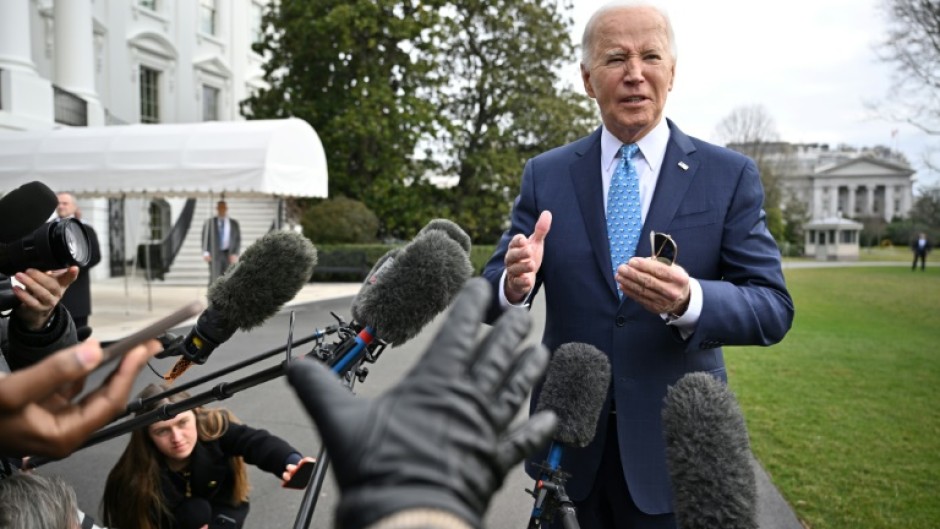President Joe Biden said Tuesday he had decided on a response to a deadly drone strike on US forces in Jordan but said he did not seek a wider war in the Middle East.
Facing growing pressure in an election year, Biden said he held Iran responsible for supplying the weapons to the people who carried out the attack that killed three US troops.
Biden, who was hitting the campaign trail in Florida, has previously blamed Iran-backed militias for the first fatal attack on US troops in the region since the Israel-Hamas war broke out in October.
"Yes," Biden told reporters at the White House when asked if he had decided on his response, but he did not give further details on what actions he would take.
"I don’t think we need a wider war in the Middle East. That’s not what I’m looking for," he added when asked about fears that taking on Iran could inflame a broader conflict.
Republicans have urged the 81-year-old Democrat to punish Iran for the drone strike on a US military facility near the Jordanian-Syrian border Sunday, with some urging direct strikes on Iran itself.
But Biden's administration believes hitting Iranian territory could cause the region to erupt, with strikes on Iranian-backed militias and possibly on Iranian Revolutionary Guard facilities in other countries more likely, US media reported.
The White House on Monday promised a "very consequential" response.
- 'Hold them responsible' -
Asked whether Iran was to blame for the attack on Jordan, Biden replied: "I do hold them responsible, in the sense that they're supplying the weapons to the people who did it."
Biden added that "we'll have that discussion" when asked if a direct link to Iran had been established.
Tensions have escalated sharply in the region following the Jordan attack, already unstable after the October 7 Hamas attack on Israel and Israel's devastating response in Gaza.
The Kremlin, a close ally of Tehran, on Tuesday called for a de-escalation in the Middle East.
"In our view, the overall level of tension is very alarming and, on the contrary, now is the time for steps to de-escalate tensions," Kremlin spokesman Dmitry Peskov told reporters in Moscow.
"This is the only thing that can help us prevent further spreading of the conflict, especially the Middle East conflict, and somehow achieve de-confliction and de-escalation."
Tehran has said it had nothing to do with the attack and denied US accusations it supported militant groups behind the strike near the borders with Iraq and Syria.
China also warned against a "cycle of retaliation" in the Middle East.
Beijing has close ties with both Russia and Iran, with all three seeking to challenge what they say is Washington's global hegemony.
By Danny Kemp

